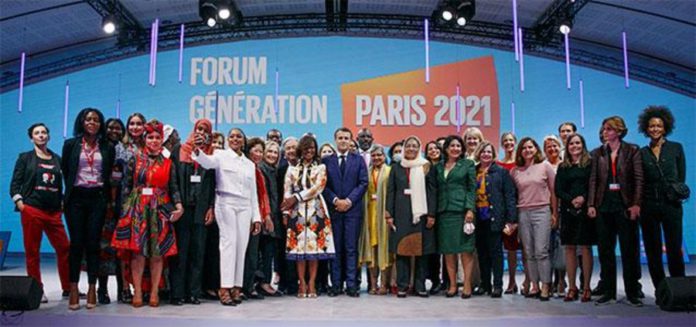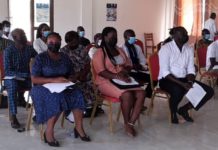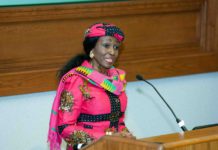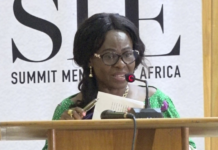
Pognaa Rosemary Bangzie, the Queen Mother of Duong in the Nadowli-Kaleo District, has advocated policies that promote gender equality to achieve an inclusive and participatory environment for all.
She also stressed the need for training and supporting women to develop their leadership and communication skills to address underlying issues such as gender labeling and discrimination, to empower women to take active part in the national development discourse.
Pognaa Bangzie said this at an event in Wa, as part of the activities to commemorate the International Women’s Day (IWD) on the campaign theme: “Inspire Inclusion”.
It was organised by the United States Agency for International Development (USAID) in partnership with the Community Development Alliance (CDA) under the USAID/Ghana Performance Accountability Activity (PAA), implemented by Democracy International in partnership with the government of Ghana.
Queen Mothers, Chiefs, representatives from the Regional House of Chiefs, Municipal and District Assemblies (MDAs), Civil Society Organizations, Community-based Organisations, local associations, groups and students among others attended the commemoration.
Pognaa Bangzie, who spoke on behalf of the Queen Mothers, assured the people that they would play their mentoring role in their respective jurisdictions to help build the confidence level of women, to participate actively in social and economic activities.
Dr Ross Worthington, the Chief of Party of PAA, said the event served as an opportunity to celebrate the achievements of women leaders, advocate for gender equality, and inspire inclusion in service delivery.
The commemoration culminated in the introduction of Gender Equality and Social Inclusion (GESI) Ambassadors for the Upper West Region.
They were: Pognaa Hajia Fati Issaka Koray, Queen Mother of Chansa in the Wa Municipality, Pognaa Gladys Tooli, Queen Mother of Nandom Kpeen in the Nandom Municipality and Madam Rafikata Mohammed, an educationist.
The ambassadors were expected to champion the voices of women, youth, persons with disabilities, and other marginalised groups, and advocate for accountability and inclusion in the delivery of local public services.
Mr Salifu Issifu Kanton, the Executive Director of CDA, said though Ghana could be seen as the most stable democracy in West Africa, women were left behind in the leadership of the country.
He said the low representation of females at the Ministries Department and Agencies, Parliament, and as Municipal and District Chief Executives, especially in the Upper West Region, were examples of the marginalisation of women in the country’s leadership.
“Yet women contribute immensely to the economic, social, cultural, and political development of our society,” he said.
He said the occasion was a clarion call on stakeholders to invest in women by giving them fair opportunities to contribute to the national economy, while giving girls the chance to be educated for their empowerment.
Mr Kanton called on traditional leaders to ensure coordinated efforts in their respective jurisdictions, to help remove barriers against women’s access to resources and empowerment and create a better society for all.
The PAA and CDA commemoration of the IWD commenced with a radio discussion to raise awareness about IWD and its role in advancing inclusion.
Queen Mothers and women leaders from diverse backgrounds also held discussions on pressing issues affecting women and girls such as Gender-based Violence and the exclusion of women and marginalised groups from decision-making.
ALSO READ:






